CORE COUNTRY TEAMS
Affiliate country teams
Country Study Leaders
Australia
Jeremy Baskin
Jeremy Baskin is a Senior Fellow at the Melbourne School of Government where he focuses on the legitimacy and accountability of knowledge experts in policy-making. His other research interests include climate and energy policy and associated technologies, the notion of the Anthropocene, and changing understandings of the authority of science. He is joint co-ordinator of a cross-faculty network of Science, Technology & Society (STS) scholars at the University STS@UoM. In 2017 Jeremy was awarded a PhD in Politics from the University of Melbourne. He also has degrees from the University of London and the University of Cape Town. He has been a Fellow of the Program on Science, Technology & Society (STS) at the Harvard Kennedy School of Government, and a Fellow at the Max Planck Institute for the Study of Societies in Cologne. He has worked at the University of Cambridge’s Institute for Sustainability Leadership, designing and delivering programmes targeted at senior leaders in business, government and civil society.
Sujatha Raman
Sujatha Raman is Associate Professor and Director of Research and Reader at CPAS. Trained in science and technology studies (STS), she is exploring the contribution that science communication research and practice can make to science, technology and innovation in the public good. Raman was previously Co-Director of Research at the Institute for Science and Society (ISS), University of Nottingham (UK) and Director from 2016-18 of the Leverhulme Research Programme, “Making Science Public: Challenges and Opportunities”.
Austria
Iris Eisenberger
Iris Eisenberger is a Professor of Public Law and European Economic Law at the University of Graz. Her research focus includes technology law, public economic law, and the protection of fundamental and human rights. After obtaining her PhD in Law from the University of Graz, Austria, and a Master of Science in Political Theory from the London School of Economics and Political Science, UK, she received her Habilitation for Constitutional Law, Administrative Law, and the related fields of European Union Law for her book on “Innovation in the Law” from the University of Vienna in 2014. After her time as a faculty member at the Department of Constitutional and Administrative Law, University of Vienna, she held a position as Professor of Law and Head of the Institute of Law at the University of Natural Resources and Life Sciences, Vienna, from January 2016 until February 2020.
Ulrike Felt
Ulrike Felt is Professor of Science and Technology Studies since 1999, and Head of the Departement of Science and Technology Studies and of the research platform Responsible Research and Innovation in Academic Practice. After having finished her PhD in theoretical physics at the University of Vienna in 1983, she worked for nearly five years in an interdisciplinary research team of science historians at the European Center for High Energy Physics (CERN) in Geneva studying social, political and scientific aspects in the foundation period of this first big European research institution. During this period her research interests moved into the field of science and technology studies (STS). After her stay at CERN she returned to Vienna, where she took up a position at the newly founded Institute for Philosophy of Science and Social Studies of Science headed by Helga Nowotny. In 1997 she received her habilitation in Science Studies/Sociology of Sciences.
Brazil
Philip MacNaghten
Phil Macnaghten is Professor in the Knowledge, Technology and Innovation Group. He is an interdisciplinary social scientist working at the interface of science and technology studies, public engagement studies, governance of emerging technology, and responsible innovation. Phil has a strong track-record in making his work accessible to natural scientists that is reflected through publications in flagship journals aimed at communicating social science governance debates in current scientific issues. With colleagues Richard Owen and Jack Stilgoe, Phil has been central to the conception, development, diffusion and institutionalization of the discourse of responsible innovation, both in the UK and internationally.
Marko Monteiro
Marko Monteiro is an anthropologist with a PhD in Social Sciences (University of Campinas, 2005). He has held postdoctoral positions at the University of Texas at Austin (2006-2008) and the University of Campinas (2009). He is currently Associate Professor at the Science and Technology Policy Department, University of Campinas. His research interests lie in Science and Technology Studies (STS) and Anthropology of Science and Technology. He has worked with topics such as sociotechnical controversies; ethnographies of interdisciplinary scientific practice; and visual representation in science. He is currently conducting research related to the governance of science in Brazil, especially focusing on Responsible Research and Innovation (RRI) and the Brazilian response to Covid-19.
China
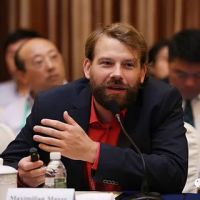
Maximillan Mayer
Dr. Maximilian Mayer is Junior-Professor of International Relations and Global Politics of Technology at University of Bonn. He worked assistant professor at the University of Nottingham Ningbo China, was a Research Professor at Tongji University, Shanghai, senior researcher at the Munich Center for Technology in Society, Technical University Munich and served at the Bonn University’s Center for Global Studies (CGS) as managing assistant and senior fellow. Maximilian research interests include the global politics of science, innovation, and technology; China’s foreign and energy policy; global energy and climate politics; theories of International Relations. Maximilian has published seven books including China’s Energy Thirst: Myth or Reality?. He is coeditor of Art and Sovereignty in Global Politics. He was visiting scholar at Harvard Kennedy School’s Program on Science, Technology and Society, and served as co-chair for the STAIR section of the International Studies Association.
France
Bastien Lafon
Bastien is a student at Mines ParisTech. Singularly interested in issues at the crossroads of the public and private sectors, especially in energy, sustainable development and economic fields.
Brice Laurent
Brice Laurent’s research focuses on the relationships between innovation and democracy, and uses the theoretical approaches and empirical methods of Science and Technology Studies (STS). He has published books on emerging technologies and the democratic issues they raise (Democratic Experiments. Problematizing nanotechnology and democracy in Europe and the United States, MIT Press, 2017), and on the politics of regulation (Labelling the economy. Quality and value in contemporay markets, with Alexandre Mallard (eds.), Palgrave, 2020 ; European Objects. The troubled dreams of harmonization, MIT Press, 2021). Brice Laurent’s current works relate to the political dimensions of technological projects, in domains such as city experiments and natural resources.
Germany
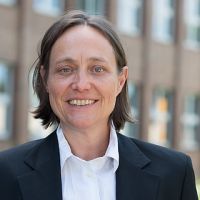
Silke Beck
Silke Beck is an internationally recognized expert in the field of global environmental assessments as well evidence-based policy-making on climate change. She was (co)leading international inter- and transdisciplinary projects on climate change, ecosystem management, innovation and sustainable transformation. Recently, Beck is the principal investigator of the GoST project as part of the Belmont-Norface research programme, “Transformation towards Sustainability”. She is the co-leader of UFZ Science-Policy Expert Group (SPEG) which has contributed to a variety of practical attempts to integrate research insights into recent assessment activities, including the Intergovernmental Panel on Climate Change (IPCC) and the Intergovernmental Platform for Biodiversity and Ecosystem Services (IPBES), such as lead expert nominated for the scoping of the IPBES assessment of transformative change.
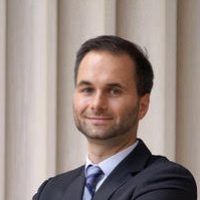
Sebastian Pfotenhauer
Sebastian Pfotenhauer is the Co-Director of the Munich Center for Technology in Society (MCTS) and Carl von Linde Associate Professor for Innovation Research at Technical University of Munich. An STS and innovation policy scholar, Sebastian’s research interests include innovation cultures and strategies, the global circulation of innovation practices, global governance of emerging technologies, and co-creative responsible innovation practices, and capacity-building in science and innovation. He is the coordinator of the Munich Cluster for the Future of Mobility in Metropolitan Regions (M Cube) and of the EU-Horizon2020 project SCALINGS (“Scaling up co-creation: Avenues and Limits for Integrating Society in Science and Innovation”), a flagship initiative investigating the use of new collaborative innovation formats such as living labs and pre-commercial procurement in robotics, autonomous driving, and urban energy systems. Before joining TU Munich, he was a research scientist and lecturer with the MIT Technology & Policy Program and the MIT Sociotechnical Systems Research Center, as well as a fellow at the Harvard Program on Science, Technology and Society. He has served as consultant on innovation policy to various regional and national governments, as well as for the Organization for Economic Co-operation and Development in Paris, France. He holds an S.M. in Technology Policy from MIT, a PhD in Physics from the University of Jena, Germany, and has received post-doctoral training in STS and public policy at MIT and Harvard.
India

Bhargavi Rao
Bhargavi S. Rao works at the intersections of community action with law, policy, planning and governance. She has 25 years of experience across research, advocacy, campaign and teaching on a variety of human rights, governance and people-centred efforts in areas of environmental and social justice. She is currently Deputy Director, Centre for Financial Accountability and a trustee at ESG where she guides research initiatives and legal interventions. She has worked with the Public Health Foundation of India, Azim Premji Philanthropic initiatives and was Co-Director, International Honours Programme (Boston University & SIT) & Minnesota Studies in International Development, University of Minnesota. Her areas of research include environmental decision-making processes in the context of Mega Infrastructure Projects, Renewable Energy, Biodiversity, Waste Management, Governance, Public health, Urban issues and Traditional Livelihoods. She was a member of the SDG committee, GOK on goal 15. She teaches on faculty led Study Abroad programmes & is guest faculty at universities abroad, local educational institutions and corporates. She has contributed research papers in leading science journals, chapters to books and articles in magazines and dailies. She has contributed research papers in leading science journals, chapters to books and articles in magazines and dailies. The last year she has anchored a series of webinars on various public health and environment related themes and has been a speaker on many topics related to environmental and Social justice issues.
Leo Saldanha
Leo F. Saldanha is full-time Coordinator of Environment Support Group (ESG), a research and advocacy initiative based in Bangalore, India. He has wide-ranging experience in Environmental Law and Policy, Decentralisation, Urban and Regional Planning and a variety of Human Rights and Development related issues gained from working across many sectors for about three decades. He is actively engaged in advancing research and advocacy initiatives on critical environmental and social justice concerns across India, and with several global research and advocacy networks. In addition, he is involved as Principal Investigator of the India component of the international project entitled ‘Governance of Socio-Technical Transformation’, a collaborative initiative of Harvard Kennedy School (USA), Helmholtz Institute (Germany), SPRU-Sussex University (UK), African Centre for Technology Studies (Kenya) and ESG. He is a key researcher in the multi country research project on COVID controversies initiated by Harvard Kennedy School and Cornell University. Leo has guided several initiatives to promote progressive environmental laws, and decentralisation and devolution of governance, to support effective participation of local communities in decision making. He was the Country Coordinator and Faculty of the “Cities in the 21st Century” and “Health and Community” courses of the International Honours Programme, Boston University, now part of School of International Training, USA (2002-2009), and served as Co-Director of the Minnesota Studies in International Development, University of Minnesota, USA (2014-2017).
Italy
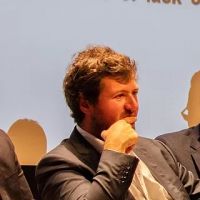
Alessandro Allegra
Alessandro is a science policy researcher and professional interested in understanding and shaping the interface between science, politics, and society in Europe. He is currently doctoral candidate in STS at University College London (UCL), and recently completed a Fulbright-Schuman fellowship in the STS Program at Harvard’s Kennedy School. His research focuses on expert advice in EU policymaking. Coming from a background in philosophy of science, Alessandro has professional experience in UK, EU, and international science policy, having worked at UNESCO, the Royal Society of London, the UK Royal Society of Biology, and the European Commission. He serves as Secretary of the Association of Italian Scientists in the UK (AISUK) and co-founded the #ScienzaInParlamento science policy campaign in Italy.

Federico Brandmayr
Federico Brandmayr is a postdoctoral research associate at the Centre for Research in the Arts, Social Sciences and Humanities, University of Cambridge, where he is part of Expertise Under Pressure, a project funded by the New Institute Foundation that focuses on the dilemmas and challenges experts face in contemporary societies. He has a background in sociology and philosophy of science and holds degrees from the University of Trieste and Sorbonne University. His research focuses on the cultural authority of science, on legal and political threats to scientific research, and on the involvement of scientists in court cases, both as experts and defendants. He has written extensively on the L’Aquila trial, in which several researchers were prosecuted following a deadly earthquake in central Italy. His work has appeared in Science, Technology, and Human Values, in Social Epistemology, in Science as Culture, and in the European Journal of Social Theory, among others. In the summer of 2021, he will join the MacMillan Center at Yale University as a postdoctoral associate.
Emanuela Gambini
Emanuela Gambini is a Teaching Fellow at the Centre for Commercial Studies, Queen Mary University of London and am completing an MSc in Comparative Politics at LSE, London. She has a background in law, being a lawyer specializing in IP, having earned a JD in Law from the Catholic University S.C. in Milan and an LL.M. in Intellectual Property from the WIPO and the School of Law of the University of Turin. She earned her PhD in Commercial Law at CCLS, Queen Mary University of London. Her PhD thesis, entitled “Imagined Nature: Narratives and Metaphors in the Co-production of Biotech Patentable Inventions” addressed how the use of metaphors and narratives has proved pivotal in expanding the scope and settling the meaning of patent eligible matter in several jurisdictions by drawing on STS theoretical frameworks. In 2006,Emanuela was a Fellow in the Science, Technology & Society Program directed by professor Sheila Jasanoff at the Harvard Kennedy School and her approach to the problems at the crossroad of technoscience, law and IP is co-productionist.
Luca Marelli
Luca Marelli is a Marie Skłodowska-Curie fellow (2018-2020) with the Life Sciences & Society Lab, researching on the politics of biomedical innovation of the European Union. Luca lectures on bioethics and Science and Technology Studies (STS) at the University of Milan, and he is member of the Science & Democracy Network (SDN) and the Belgian Science, Technology and Society network (BSTS).
Japan
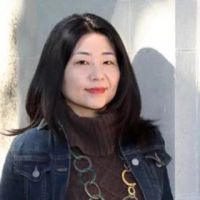
Kyoko Sato
Kyoko Sato is Associate Director of the Program in Science, Technology, and Society at Stanford University. Her research examines technoscientific governance in Japan and the United States. At present, she is investigating the dynamics and relationships among global and national nuclear and radiation governance, expertise, and democratic citizenship. She is co-editing a collective volume (with Soraya Boudia and Bernadette Bensaude Vincent), Living in a Nuclear World: From Fukushima to Hiroshima, an interdisciplinary post-Fukushima reflection on the development of the global nuclear order. Her previous work examined interdisciplinary knowledge production in the United States and the politics of genetically modified food in France, Japan, and the United States. She has published in journals such as Science, Technology and Human Values; East Asian Science, Technology and Society; Theory and Society; and 科学技術社会論研究 (Journal of Science and Technology Studies; in Japanese) and book chapters on the 2011 Fukushima disaster both in English and in Japanese. She worked as a journalist in Tokyo before pursuing her PhD in sociology from Princeton University.
Netherlands
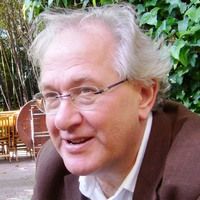
Rob Hagendijk
Rob Hagendijk formally retired as associated professor from the University of Amsterdam in 2014. He continues to work as a member of the Amsterdam Institute Social Science Research and its research group on ‘Transnational Configurations, Conflict and Governance. Since 2012 his main research interest has been the politics of rare diseases and orphan drugs in Europe and beyond.
Singapore
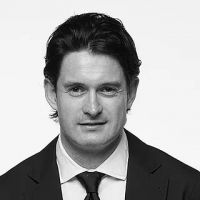
Ian McGonigle
Ian is a scholar of Anthropology and STS. He is interested in the relationships between science, technology and identity. He specializes in contemporary Middle Eastern societies, with a focus on genetic technologies and national development. His more recent research focusses on the relationships between human genome projects and ethnic identity in Asia. Ian came to NTU in 2018 with a Nanyang Assistant Professor start-up grant of SG$1M to launch a science and society research group. He has also been an affiliate of Harvard’s Program on Science, Technology, and Society, since 2013. Ian has Ph.D.s in Biochemistry (Cambridge 2010) and Middle Eastern Studies and Anthropology (Harvard 2018).
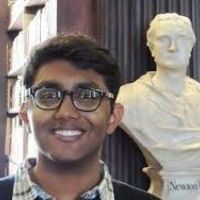
Sharad Pandian
Sharad Pandian graduated from Nanyang Technological University (NTU) with a degree in Physics, and then pursued an MPhil in the History and Philosophy of Science from the University of Cambridge as a Gates-Cambridge Scholar. Pandian has researched the history of astronomy, seismology in the 20th century, and the shift from Newtonian to Einsteinian physics.
South Korea
Sang-Hyun Kim
Sang-Hyun Kim is Associate Professor at the Critical Global Studies Institute, Sogang University. Originally trained as a materials chemist (D.Phil., Oxford), Kim later switched to the humanities and social sciences and received his Ph.D. in history and sociology of science from the University of Edinburgh. Prior to joining Sogang, he did his postdoctoral work at the Harvard STS Program, and then worked as a faculty member at the Research Institute of Comparative History and Culture, Hanyang University, Korea. Drawing on the intersections between STS, critical development studies, environmental history, and intellectual history, Kim’s recent research has focused on the contextual analysis of the transnational formation, dissemination, and transformation of development discourse, knowledge, and practices—as well as of developmentalism and growthism as forms of governmentality—especially in Korea and other East Asian countries.
Buhm Soon Park
Buhm Soon Park is Professor of History of Science at Korea Advanced Institute of Science and Technology (KAIST). He has authored numerous articles, book chapters, and reviews in the history of quantum chemistry, the history of biomedicine, and the history of East Asian science and technology. He is author or editor of several books, including Bridging the Technology Gap (Seoul National University Press, 2013) and Basic Science in Society (Hanwool, 2016). His recent study explores policy issues at the intersection between science, law, and governance in the areas like stem-cell research, genome-editing technology, and clinical trials industry. He is currently Director of Center for Anthropocene Studies, where he leads the multi-disciplinary study of sensing, governing, and imagining the Anthropocene.
Sweden
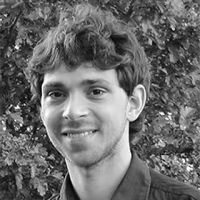
Shai Mulinari
Shai Mulinari is an associate professor and senior lecturer at the Department of Sociology at Lund University. He undertakes research on pharmaceutical regulation, pharmaceutical industry practices and transparency, and policies around health and health-care inequalities. Among other things, his research has investigated how regulatory authorities in the USA and Europe have evaluated influenza drugs and how Nordic countries chose different strategies during the influenza pandemic in 2009.
Taiwan
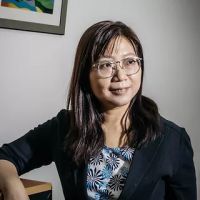
Shun-Ling Chen
Shun-Ling Chen is Associate Research Professor and the co-director of the Information Law Center at the Institutum Iurisprudentiae, Academia Sinica. Her research focuses on science and technology studies, information and society, online collaborations, intellectual property, Indigenous peoples’ law and policy and Indigenous rights.

Yu-Ling Huang
Yu-Ling Huang is Assistant Professor, Department of Medicine, National Cheng-Kung University, Taiwan. Her research interests include biopolitical knowledge and governance, reproductive health and technology, and vaccination policy and communication.
United Kingdom
Warren Pearce
Warren is Senior Lecturer at the University of Sheffield, leading the “Knowing Humans” research theme. His work explores how science is used in public debates about politics and policy, with a current focus on three areas: (1) the use of scientific evidence, advice and assessment in policy work; (2) how digital platforms are changing experts and expertise; and, (3) the role of images in online science communication. Warren has researched these themes extensively through a series of journal articles examining the public life of climate change. He also has published research on other prominent cases such as plant genome editing, autism, responsible innovation and the use of randomised controlled trials in policy. Warren employs interpretive, digital and comparative research methods, collaborating with information designers to rethink approaches to visualisation for interpretive research.
Jack Stilgoe
Jack Stilgoe conducts research on the governance of emerging technologies, including genetically modified crops, nanotechnologies, geoengineering, machine learning and self-driving cars.

James Wilsdon
James Wilsdon is an interdisciplinary social scientist who works on the governance and management of science and research, and the relationship between evidence and decision-making. Over his career, in addition to academic posts at the universities of Sheffield, Sussex and Lancaster, he has worked in public policy, think tanks and at the UK’s national academy of science. Since 2016, he has been based at the University of Sheffield, where he is now Digital Science Professor of Research Policy and Director of the Research on Research Institute (RoRI) – an international consortium of research funders, academic institutions, and technologists working to champion transformative and translational research on research.
United States
Stephen Hilgartner
Stephen Hilgartner is Professor of Science & Technology Studies at Cornell University. His research examines the social dimensions and politics of contemporary and emerging science and technology, especially in the life sciences. His work focuses on situations in which scientific knowledge is implicated in establishing, contesting, and maintaining social order — a theme he has addressed in studies of expertise, property formation, risk disputes, and biotechnology. His most recent book, Reordering Life: Knowledge and Control in the Genomics Revolution (MIT Press, 2017), examines how new knowledge and new regimes of control took shape during the Human Genome Project. Hilgartner’s book on science advice—Science on Stage: Expert Advice as Public Drama—won the Rachel Carson Prize from the Society for Social Studies of Science. He is also a co-editor of two recent books: Science & Democracy: Making Knowledge and Making Power in the Biosciences and Beyond (Routledge, 2015) and Handbook of Genomics, Health and Society (Routledge, 2018). Hilgartner is a Fellow of the American Association for the Advancement of Science.
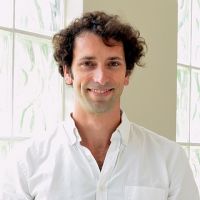
J. Benjamin Hurlbut
J. Benjamin Hurlbut is trained in the history of modern biomedical and life sciences. He studies the changing relationships between science, politics and law in the governance of biomedical research and innovation in the 20th and 21st centuries. He is author of Experiments in Democracy: Human Embryo Research and the Politics of Bioethics (Columbia University Press, 2017).
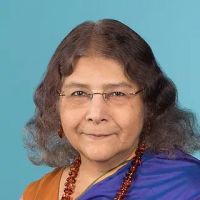
Sheila Jasanoff
Sheila Jasanoff is Pforzheimer Professor of Science and Technology Studies at the Harvard Kennedy School. A pioneer in her field, she has authored more than 120 articles and chapters and is author or editor of more than 15 books, including The Fifth Branch, Science at the Bar, Designs on Nature, and The Ethics of Invention. Her work explores the role of science and technology in the law, politics, and policy of modern democracies. She founded and directs the STS Program at Harvard; previously, she was founding chair of the STS Department at Cornell. She has held distinguished visiting appointments at leading universities in Europe, Asia, Australia, and the US. Jasanoff served on the AAAS Board of Directors and as President of the Society for Social Studies of Science. She is a member of the Council on Foreign Relations. Her honors include the SSRC’s Hirschman prize, the Humboldt Foundation’s Reimar-Lüst award, a Guggenheim Fellowship, an Ehrenkreuz from the Government of Austria, and foreign memberships in the British Academy and the Royal Danish Academy. She holds AB, JD, and PhD degrees from Harvard, and honorary doctorates from the Universities of Twente and Liège.
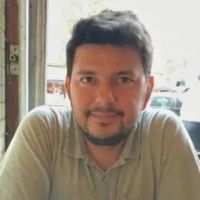
Onur Özgöde
Onur Özgöde is an economic and historical sociologist whose work explores the emergence of socio-economic problems that exceed the limits of neoliberalism from a science and technology studies perspective. He is currently working on a book manuscript, entitled Fractals of Governance: Governing Systemic Risk at the Limits of Liberalism, 1922-2010. Onur received his Ph.D. in Sociology from Columbia University in 2015 and has held research fellowships at Harvard Law School and Duke University in the last two years. He studied Operations Research and Economics at Columbia (B.S. 2005).
Margarita Rayzberg
Margarita Rayzberg is a science and technology studies scholar whose work examines the politics of knowledge production and expertise in the context of international development and public health. Margarita received her PhD in Sociology at Northwestern University, where her dissertation analyzed the widespread adoption of field-based experimental methods in development economics and their implications for the governance of foreign aid and populations in postcolonial regions, specifically East Africa. She is currently a post-doctoral associate in the Science and Technology Studies Department at Cornell University.
